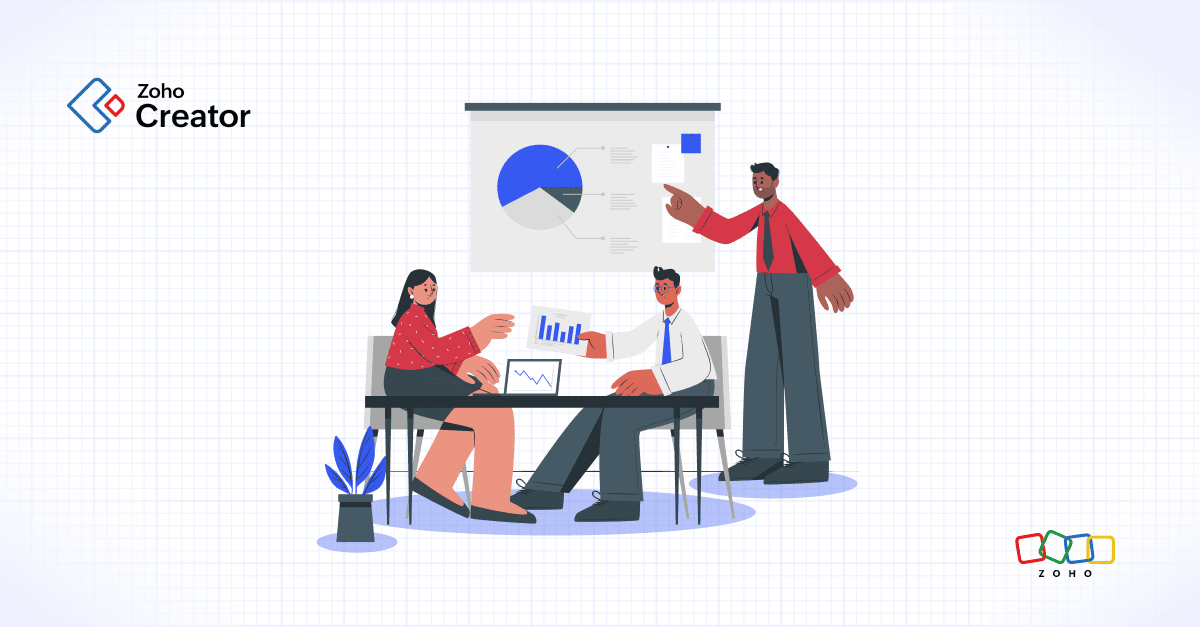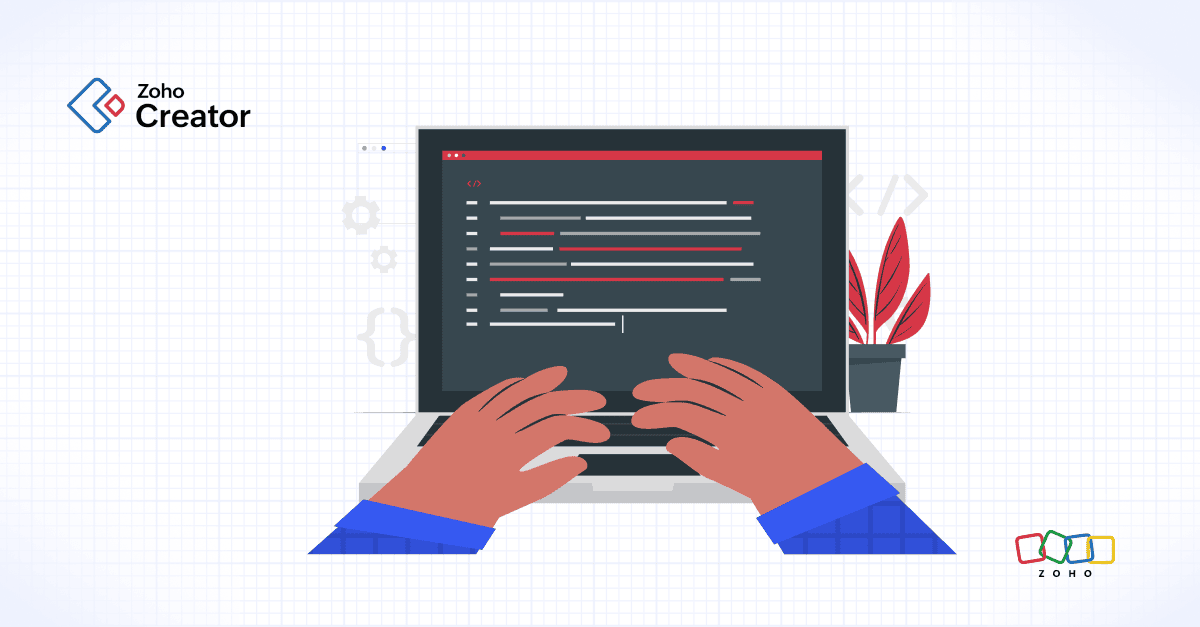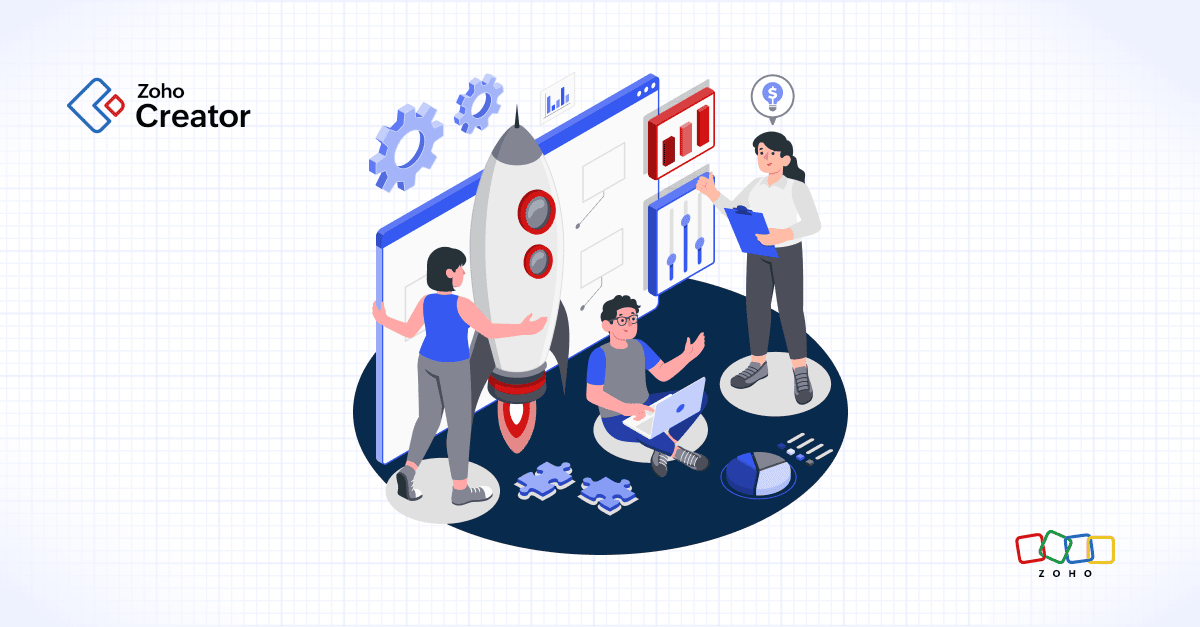- HOME
- Know Your Tech
- What is DPA (Digital Process Automation)? The Comprehensive Guide
What is DPA (Digital Process Automation)? The Comprehensive Guide
- Last Updated : April 20, 2023
- 2.1K Views
- 6 Min Read
Digital Process Automation (DPA) is a term that has been gaining a lot of buzz lately, but what is it and why should you care? At its core, DPA is about automating the process of taking input from one or more sources and turning it into an action. This could be something as simple as automatically adding someone to a mailing list when they sign up on your website, or something more complex like automatically routing customer support requests to the right department. By automating these processes, you can improve productivity and efficiency, freeing up your team to focus on other tasks. DPA can also help you reduce human error, increase transparency and compliance, and improve customer satisfaction. If you're looking for ways to automate your business processes, DPA is one option worth exploring.
DPA is a holistic approach to business process automation that combines the best practices from several different areas including software development, business analysis and project management. DPA focuses on the following key factors,
- Automation of low-level, repetitive tasks with no decision-making required so human employees can focus on more important work;
- Continuous improvement through feedback and iteration;
- Centralized management of processes and data to improve transparency and compliance;
- Use of technology to improve efficiency, accuracy and scalability.
What are some of the benefits of DPA (Digital Process Automation)?
As business owners or CXO's, we all wear many hats. Inevitably, this means that some of those hats are less comfortable than others. For example, bookkeeping and data entry can be a major pain point – but it doesn’t have to be! Digital process automation can take these time-consuming tasks off your plate, leaving you more time to focus on what you do best. Read on to learn about the benefits of digital process automation and how it can work for your business. You might just be surprised at how much of a difference it can make.
Increased Productivity
Automating low-level tasks allows employees to focus on more important work, leading to increased productivity. If you are an administrator or process engineer in a organisation, you know that the key to successful automation is intelligent process design and deployment. When processes are correctly configured and tightly integrated with other systems, productivity and overall efficiency increases.
Reduced Error Rate
With new advances in technology like DPA, we can now achieve a significantly reduced error rate in digital process automation. So what does this mean for your business? With fewer errors comes improved productivity and significant cost savings. Imagine being able to automate your processes with complete confidence that the results will be accurate and reliable - that's what we're talking about here.
Improved Transparency and Compliance
Grounded in its commitment to transparency, accountability and compliance, digital process automation is becoming an increasingly popular choice for businesses of all sizes. Unlike traditional process automation methods, which can be opaque and difficult to manage, DPA provides a clear view into business processes and the data that drives them. This makes it easier for organizations to ensure that critical data is handled securely and according to regulatory requirements. In addition, DPA can help businesses automate tasks that may be prone to human error, improving accuracy and efficiency across the board. With these benefits in mind, it's no wonder that more and more businesses are turning to digital process automation as a cornerstone of their operations.
Increased Customer Satisfaction
Digital process automation is the key to increased customer satisfaction. This can be seen in the many customer service chatbots that are being implemented by companies today. Chatbots allow for a more efficient customer experience by automating simple tasks and providing customers with quicker access to information. In addition, chatbots provide a more personalized experience that leads to higher levels of customer satisfaction. companies who invest in digital process automation will see an increase in overall customer satisfaction and improved bottom line performance.
Use cases of Digital Process Automation
Some high level use cases of DPA include,
1. Automate redundant and time-consuming tasks which will save you time and money
2. Improve customer service by automating processes that used to be done manually
3. Improve communication within your organization, speeding up decision-making processes
4. Manage your data more effectively and securely
5. Automating your marketing efforts, and save time and money while reaching a larger audience
We can now look at use cases for specific industries. For example,
In the healthcare industry
The health care industry is one of the most complex and challenging industries to manage. DPA can help automate repetitive tasks such as scheduling appointments, collecting payments or sending reminders for patients who are due for a check-up. DPA software solutions like Zoho Creator allow you to improve your workflow by creating an automated process that will save time and money. DPA can also help you reduce errors in the healthcare industry by automating tasks that used to be done manually such as entering patient information into an electronic health record (EHR) system or labelling prescriptions correctly before they are dispensed at pharmacies.
In the manufacturing industry
Digital process automation has been around for many years, and one of the earliest adopters was the manufacturing industry. Today, DPA is widely used in factories to manage production processes, quality assurance and inventory control. DPA helps manufacturers improve efficiency by automating tasks such as scheduling workers, tracking parts and recording production data. In addition, DPA can help reduce errors and improve product quality by providing real-time feedback on the manufacturing process.
In the banking and finance industry
The banking and finance industry is another sector that has been quick to adopt digital process automation. DPA is used extensively in areas such as accounts payable, accounts receivable, loan processing and customer service. DPA helps banks and financial institutions improve efficiency by automating tasks such as data entry, account reconciliation and fraud detection. DPA can also help reduce human error, leading to a more accurate and reliable financial record.
The benefits of DPA are universal. The implementation process maybe different depending on the industry you're working in, but its potential is vast and will be useful for all types of businesses.
What is the right approach to implement a Digital Process Automation Plan?
There is a lot of talk about digital process automation (DPA) plans, but not many people know how to go about implementing one. It can be tricky to know where to start, but with the right approach, it can be a smooth and empowering process. Here are four tips to help get you started on your DPA journey.
1) Get everyone on board
Digital transformation is a team effort, and that goes for the implementation of any DPA plan as well. Make sure you have buy-in from all levels of the organization, or you'll run into roadblocks down the line.
2) Map out your current processes
It's difficult to automate something if you don't understand how it works currently. Take the time to map out your current processes and identify areas where DPA can be implemented. This will help you form a plan of action and make the transition smoother
3) Start small and focus on key processes
Don't try to automate everything at once. Start small and focus on key processes that will have the biggest impact. Once you've got those under control, you can expand DPA to other areas of your business.
4) Identify areas where automation will have the biggest impact
Not all processes are created equal. Some will be more suitable for automation than others. Identify the areas of your business where DPA can have the biggest impact and start there.
5) Seek out support from experts or other business owners who have gone through the process themselves.
DPA can be challenging at first, but with the right guidance and support it will be worth the effort in terms of increased efficiency and profitability for your company.
6) Plan for ongoing maintenance and evolution as your needs change
DPA is not a one-time solution, it's an ongoing process that will require regular updates and maintenance in order to remain relevant and useful.
Conclusion
The benefits of DPA are vast and can be applied to a variety of industries. By automating redundant and time-consuming tasks, DPA can help improve productivity and efficiency while reducing human error. DPA is also an excellent tool for collecting data and providing real-time feedback to your team so they have access to the information they need when it's needed most. DPA software solutions like Zoho Creator allow you to easily create your own DPA processes without the need for coding knowledge or technical expertise. DPA can help you stay ahead of the competition and make your business more efficient than ever before. DPA is here to stay, so what are you waiting for?
 Pranesh
PraneshPranesh is a serial entrepreneur and the Founder of Studio 31, a 12 year old, deep tech enabled, wedding photography and film company that has been recognized by many publications for its zero inventory model and unique culture in the unorganised sector.
Zoho Creator has helped Studio 31 redefine its business model by automating over 37 processes and save three hours every single day. He is also a growth consultant for Zoho Creator and helps the team address real-world challenges from a customer's point of view.



